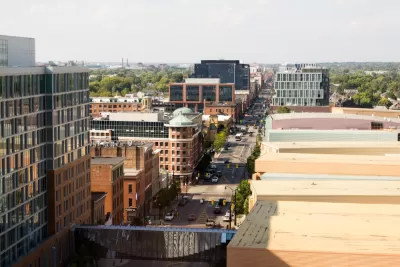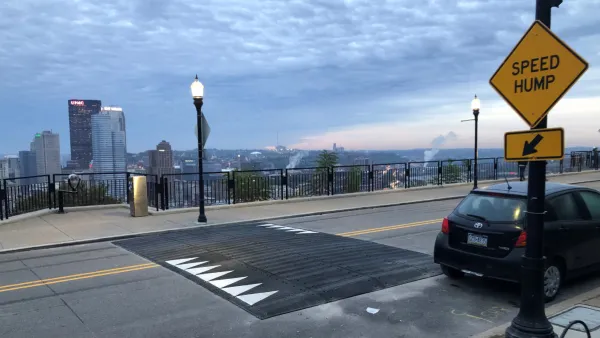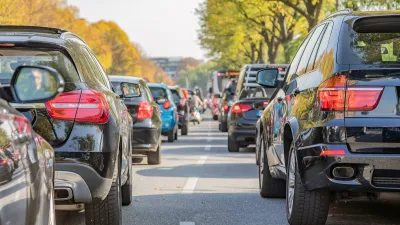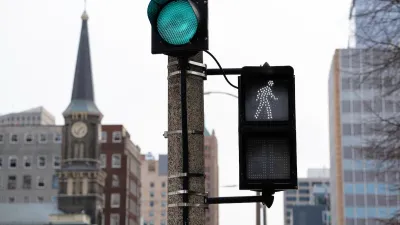A pilot program in Columbus, Ohio, will help bring order to the city’s curbside space, a response to a mobility network that has become more complicated and crowded.

"Columbus, OH introduced a new curbside management pilot program in partnership with mobility company curbFlow in a bid to address demand for deliveries and ride-hailing pick-ups and drop-offs," reports Chris Teale. The program will start next week and last for 12 months at nine locations in downtown Columbus and along a commercial corridor.
"Under the partnership, clearly marked Loading Management Zones (LMZs) will be added for use by commercial vehicles and private vehicles doing commercial work, like being used for ride-hailing. Drivers will use an app to reserve and check in and out of an LMZ," says Teale.
The goal of curbside management is to address issues such as double parking and blocked bike lanes and crosswalks. Other cities have also partnered with businesses to tackle the problem, notes Teale. "In Uber's collaboration with Cincinnati, for instance, it commissioned a curbside study and made a series of recommendations, including freeing up space by removing on-street parking and replacing it with a passenger pick-up and drop-off area, better enforcing loading zones and improving wayfinding and traffic control for motorists."
FULL STORY: Columbus, OH tackles curbside woes with pilot program

Planetizen Federal Action Tracker
A weekly monitor of how Trump’s orders and actions are impacting planners and planning in America.

Maui's Vacation Rental Debate Turns Ugly
Verbal attacks, misinformation campaigns and fistfights plague a high-stakes debate to convert thousands of vacation rentals into long-term housing.

Restaurant Patios Were a Pandemic Win — Why Were They so Hard to Keep?
Social distancing requirements and changes in travel patterns prompted cities to pilot new uses for street and sidewalk space. Then it got complicated.

In California Battle of Housing vs. Environment, Housing Just Won
A new state law significantly limits the power of CEQA, an environmental review law that served as a powerful tool for blocking new development.

Boulder Eliminates Parking Minimums Citywide
Officials estimate the cost of building a single underground parking space at up to $100,000.

Orange County, Florida Adopts Largest US “Sprawl Repair” Code
The ‘Orange Code’ seeks to rectify decades of sprawl-inducing, car-oriented development.
Urban Design for Planners 1: Software Tools
This six-course series explores essential urban design concepts using open source software and equips planners with the tools they need to participate fully in the urban design process.
Planning for Universal Design
Learn the tools for implementing Universal Design in planning regulations.
Heyer Gruel & Associates PA
JM Goldson LLC
Custer County Colorado
City of Camden Redevelopment Agency
City of Astoria
Transportation Research & Education Center (TREC) at Portland State University
Jefferson Parish Government
Camden Redevelopment Agency
City of Claremont





























